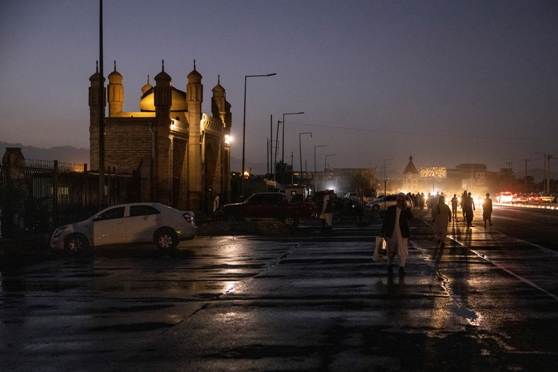At least two dead, four wounded in explosion outside mosque in kabul
By Thomas Gibbons Neff, Sami Sahak and Wali Arian
KABUL – An explosion outside a mosque in the centre of Kabul, Afghanistan, killed at least two people Sunday (3), a Taliban spokesperson said, underscoring the challenge of maintaining security for the country’s new rulers after decades of waging war.
The blast struck around 3:30 p.m. outside the Eid Gah mosque in central Kabul during funerary prayers for the mother of a high-ranking Taliban official, said Qari Sayeed Khosti, a spokesperson for the minister of interior. At least four people were also wounded in the attack.
“I heard a huge blast,” said Hasibullah, 45, a Kabul resident who was on his way to get groceries near the mosque when it was hit on Sunday. “Everyone was in a panic.”
By early evening the pavement outside the mosque had already been cleaned of the victims’ blood.
No group claimed responsibility for the explosion, but it follows a trend of similar attacks carried out by the Islamic State’s affiliate in Afghanistan. The terrorist group has ramped up its campaign of violence in the weeks since US-led troops withdrew from Afghanistan and the Western-backed government was toppled.
The Taliban’s tenuous support in the capital is predicated on a promise to provide security after four decades of war and violence. That security is backed by the enforcement of hard-line religious laws, which includes public executions and amputations for menial offenses.
But since the Taliban’s return to power, the group has been forced to defend against attacks from the Islamic State and resistance forces. Now the Taliban find themselves in a similar position to the government they displaced: trying to prevent insurgent attacks on their fighters and infrastructure.
Sunday’s blast was the first at a mosque in Kabul since the Taliban seized the capital in August. It was the deadliest attack since an Islamic State suicide bomber killed 13 US service members and nearly 200 Afghan civilians during the evacuation of Kabul’s international airport that month.
The city of more than 5 million, along with the rest of the country, is contending with an economic downturn and a humanitarian crisis.
Additionally, a drought and paralyzed international aid have put Afghanistan’s more than 30 million people in an increasingly desperate position, especially as winter approaches.
-New York Times


